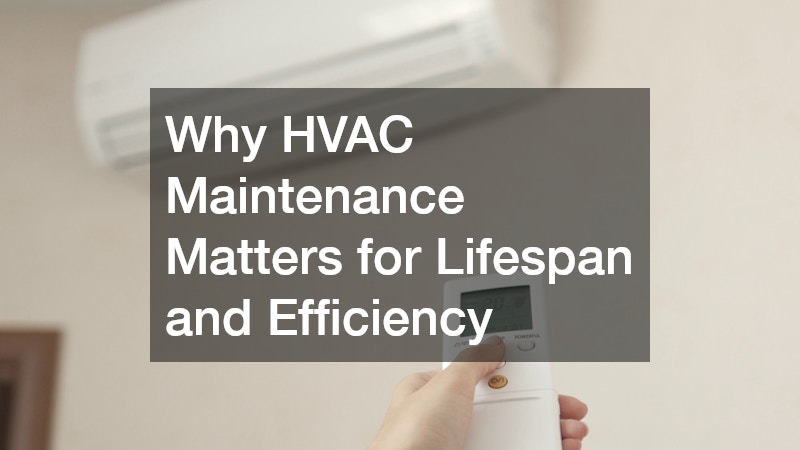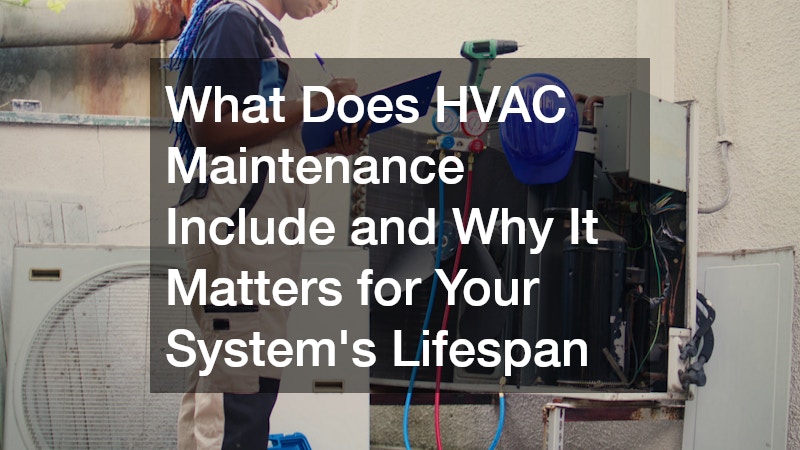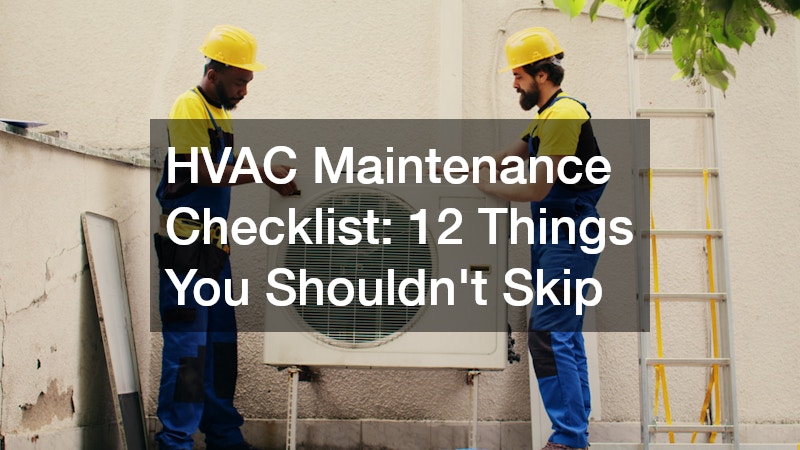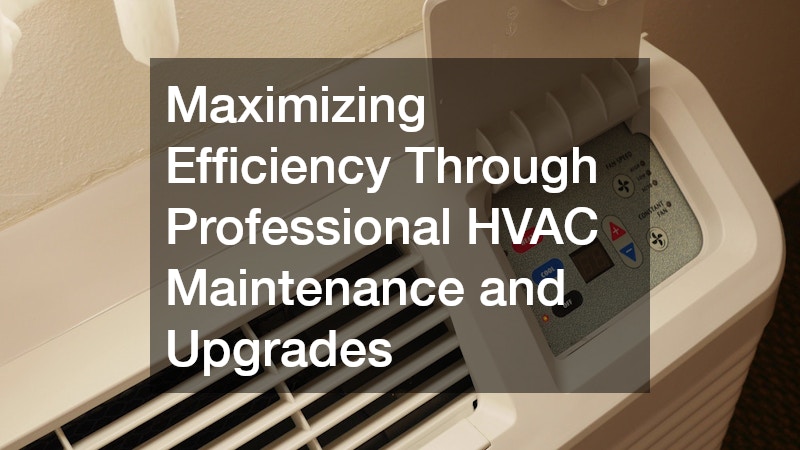Your HVAC system is one of the most important investments in your home. Whether it’s keeping you cool during the summer or warm in the winter, regular maintenance ensures it runs efficiently and lasts longer. But what does HVAC maintenance include, and why is it so essential for the health of your system?
In this article, we’ll break down exactly what’s involved in HVAC maintenance and how it impacts the longevity and performance of your system.
What Does HVAC Maintenance Include? A Closer Look at the Essentials
HVAC maintenance involves a thorough inspection, cleaning, and tune-up of your system to ensure it’s running safely and efficiently. This isn’t just about replacing filters or checking the thermostat—it’s a multi-point process designed to prevent breakdowns, improve air quality, and lower energy bills.
Here’s a look at the typical tasks included during a professional HVAC maintenance service:
- Air Filter Replacement: Dirty filters reduce airflow and strain your system.
- Thermostat Calibration: Ensures your thermostat reads and controls temperature accurately.
- Electrical Connection Checks: Loose connections can be dangerous and affect performance.
- Inspecting Ductwork: Look for leaks, damage, or blockages that reduce efficiency.
- Cleaning Coils (Evaporator and Condenser): Dirty coils cause your system to overwork, leading to higher energy usage.
- Lubricating Moving Parts: Reduces friction and wear on motors and fans.
- Checking Refrigerant Levels: Low refrigerant can indicate a leak or inefficiency.
- Inspecting and Cleaning the Blower Motor and Assembly: Maintains airflow throughout your home.
- Testing the System Cycle: Verifies your unit starts, operates, and shuts off correctly.
Each of these tasks contributes to a smoother, more efficient HVAC system that’s less prone to sudden failures.
Why HVAC Maintenance Matters for Lifespan and Efficiency

Routine HVAC maintenance isn’t just a suggestion—it’s a critical step in protecting your investment and ensuring reliable indoor comfort. Many homeowners don’t realize how much their HVAC system’s lifespan and performance depend on regular servicing.
Here’s why HVAC maintenance matters:
- Extends Equipment Life: Just like a car, regular tune-ups reduce wear and tear, keeping your system in top shape for years.
- Prevents Costly Repairs: Catching issues early can prevent expensive breakdowns and emergency service calls.
- Boosts Energy Efficiency: A well-maintained system consumes less energy, which means lower utility bills.
- Maintains Warranty Coverage: Many manufacturers require regular maintenance as part of their warranty conditions.
- Improves Indoor Air Quality: Clean filters, ducts, and coils reduce dust, allergens, and mold in your home’s air.
Over time, neglecting HVAC maintenance can lead to clogged filters, overheating, and motor failures. A simple annual checkup is a small price to pay for long-term savings and comfort.
How Often Should You Schedule HVAC Maintenance?
Homeowners often ask how frequently HVAC maintenance should be done. While recommendations may vary depending on your system and usage, most professionals advise scheduling service at least once a year for heating and once a year for cooling systems.
Here’s a basic guideline:
- Spring: Ideal for servicing your air conditioner before hot weather begins.
- Fall: Best time to inspect and prepare your furnace or heat pump for colder months.
If you have a combined HVAC system or live in an area with extreme weather, consider a biannual service agreement to ensure year-round reliability. Using an HVAC maintenance checklist helps you and your service provider ensure nothing is missed during these visits.
DIY Maintenance vs. Professional Tune-Ups: What’s the Difference?
While some basic tasks can be done by homeowners, such as changing filters or clearing debris around outdoor units, most HVAC maintenance should be left to licensed professionals. HVAC systems are complex, and improper handling can lead to safety hazards or system damage.
What you can do yourself:
- Replace air filters every 1–3 months
- Keep outdoor units free of leaves and debris
- Check for unusual noises or smells
- Ensure air vents are not blocked by furniture
What professionals handle:
- Electrical and refrigerant checks
- Coil cleaning and component lubrication
- Duct inspection and sealing
- Advanced diagnostics using tools and gauges
A trained technician has the tools and knowledge to spot potential problems early—before they turn into expensive repairs or replacements.
The Long-Term Payoff of Preventive HVAC Care

Investing in regular HVAC maintenance pays off in more ways than one. According to industry estimates, well-maintained systems can last 15–20 years, while neglected ones may fail in as little as 10 years.
Here’s what homeowners gain from consistent maintenance:
- Lower long-term costs: Reduced repair bills and improved energy efficiency
- Fewer breakdowns: Catching problems early prevents system failures during peak seasons
- Better home comfort: More consistent temperatures and quieter operation
- Peace of mind: Knowing your system is running safely and reliably
Think of preventive HVAC maintenance as insurance for your home’s comfort system. A little effort now can save you from big headaches later.
Conclusion: Protect Your HVAC Investment with Routine Care
So, what does HVAC maintenance include and why does it matter for your system’s lifespan? The answer is simple: it includes a comprehensive set of inspections, cleanings, and tune-ups that keep your system working at its best. More importantly, it ensures that your HVAC system can serve you well for many years to come—without unexpected breakdowns or costly energy bills.
As a homeowner, staying proactive with your HVAC maintenance checklist is one of the smartest decisions you can make. Schedule regular service with a trusted technician and enjoy lasting comfort, safety, and savings.



